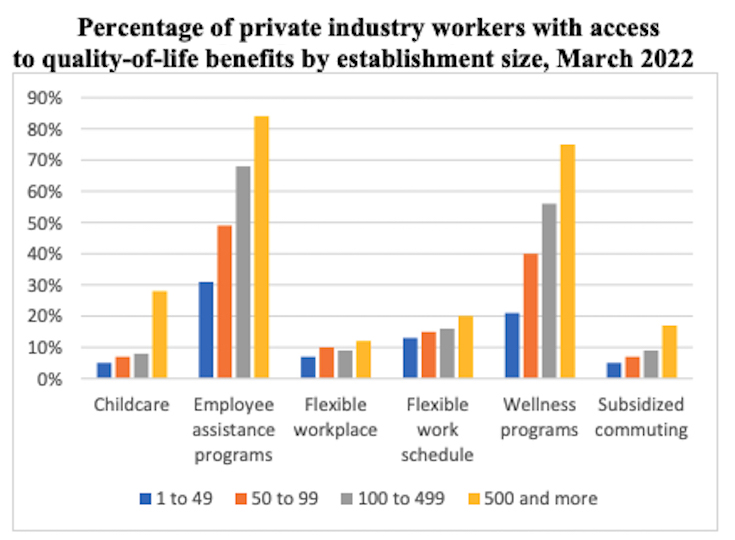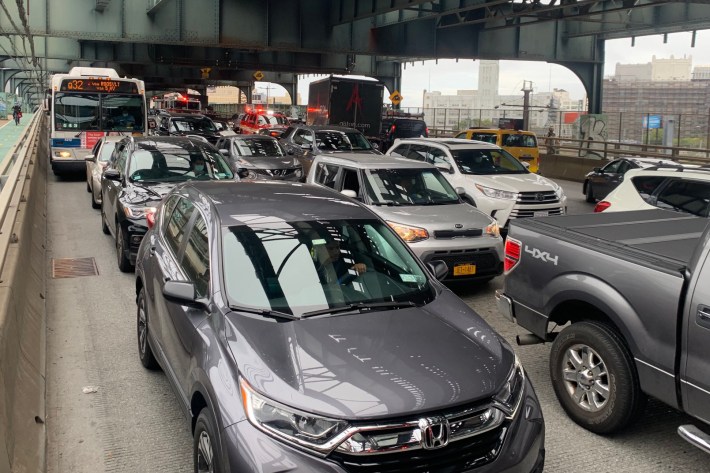The federal government should subsidize employers to provide more benefits to workers who opt for sustainable commuting modes, said two members of Congress who recently proposed legislation to bolster transportation demand management strategies.
The two members — Reps. Jake Auchincloss (D-Mass.) and Jesús “Chuy” García (D-Ill.) — said that Congress should be finding ways to reduce the number of cars on the road by providing incentives for employers to create more affordable transportation alternatives for workers.
“When employers are struggling to attract and retain talent, our roads are becoming more congested and public transit ridership is down, it’s time to empower employers to offer better transit benefits,” said Auchincloss, who serves on the House Transportation and Infrastructure Committee.
Congress also needs to enact more legislation supporting transportation demand management, and U.S. DOT officials need to find ways to fund more TDM projects through existing federal programs, added David McMaster, board president for the Association for Commuter Transportation, an organization promoting more sustainable transportation modes.
Thanks to pollution reductions in energy production and industry, transportation is the largest contributor of greenhouses gases by economic sectors, now accounting for 28 percent of GHGs, according to the Environmental Protection Agency. Agencies across the federal government recently released “The U.S. National Blueprint for Transportation,” which called for a multi-pronged, multi-agency approach to reaching the country’s net-zero GHG emissions goal by 2050.

Transportation Demand Management is a series of ways to reduce travel demand, and in doing so, reduce emissions. Such strategies can show up in workplaces in the form of subsidies for public transit, carpooling, bikeshare or in high prices for employee car parking.
TDM strategies can have a huge impact on reducing congestion if implemented. A recent study of nine major cities found that strategies such as replacing parking subsidies with a daily $5 non-single-occupancy vehicle benefit could reduce vehicle miles traveled during the daily commute by as much as 36 percent.
Auchincloss said the systemic impacts of breaking up the congestion on the road has lasting benefits for workers over time, including reduced emissions, public health benefits and simply saved time.
“We ask people who are riding a bus to sit in the same traffic as people who are in a car by themselves. That’s not fair,” Auchincloss said. “When we reduce congestion on the roads, when we prioritize mass transit, what we are doing is we are telling working class people your time is valuable as someone who can afford a car ride.”

García said reaching the U.S.’s decarbonization goals will take a holistic approach.
“We also must continue to advocate for projects that are conveniently located to affordable housing, to save passageways, green spaces and jobs, reducing congestion and carbon emissions, increasing bike and pedestrian safety, and redoubling our commitment to Vision Zero,” García said.
TDM may change the way workers commute, but these benefits still aren’t commonplace among the workforce.
Fewer than 20 percent of employees at private sector companies with 500 or more employees have access to subsidized commuting benefits, according to a US Department of Labor report. And the smaller the company, the fewer subsidies are offered. It’s unclear however from the report how commuter benefits are broken down.
Association for Commuter Transportation Executive Director Davis Straus said he recognizes the uphill battle that transportation advocates face in getting companies to offer more benefits that get their workers out of cars.

“It’s always been challenging making that business case,” Straus said about selling the advantages of commuter benefits. “But I think it comes through the data showing how mode shifts can happen through more small investments and programs.
Straus said that TDM works best when the top brass at a given company realizes that TDM is “key to their business success, and being able to attract and retain employees.”
Some companyies are getting the message.
Genentech, the South San Francisco biotechnology corporation, makes reducing congestion and mitigating the impacts fo climate change a central part of the company’s mission and growth, according to Andy Jefferson, the company’s senior director of transportation. The company encourages both public transit and active commuting for employees by refunding all public transit fare costs and offering a monetary incentive to those who walk, jog, or ride a bike to work.
“Genentech’s extensive network of bus routes, public transit connections, and car/vanpools allows us to significantly reduce single-occupancy vehicles and carbon emissions throughout the Bay Area and continue on our path to zero emissions,” Jefferson said via email, adding that nearly nearly 40 percent of the company’s 10,000-strong South San Francisco workforce uses some alternative form of transportation to get to work.
“Our robust service also allows us to broaden our talent pool by making our South San Francisco campus more accessible,” Jefferson said.
The post Pols: Congress Must Bolster Sustainable Commutes to Reduce Carbon and Congestion appeared first on Streetsblog Massachusetts.






